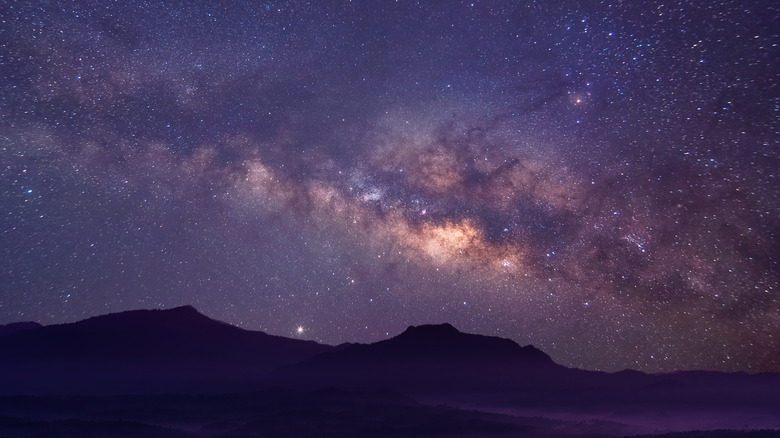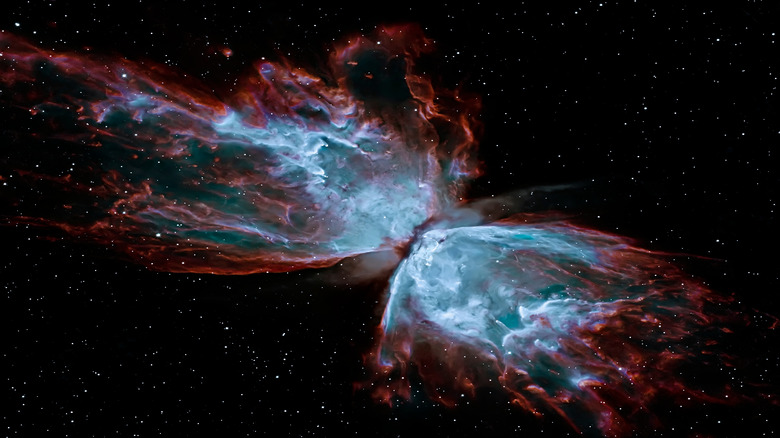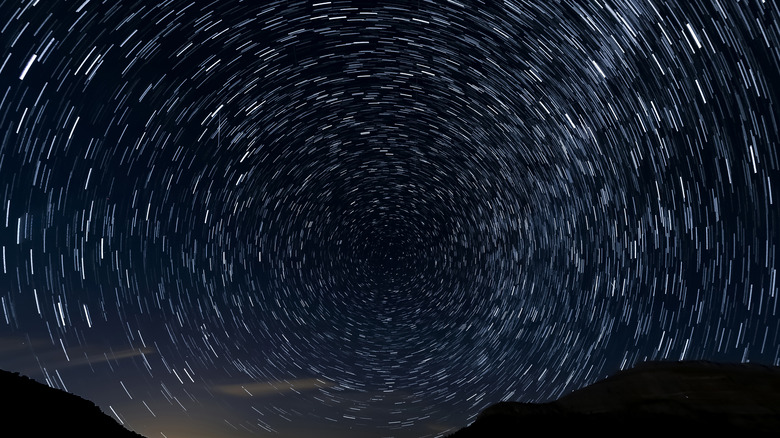What Would Happen If There Were No Stars?
There's nothing quite like a night sky filled with stars. To lie on your back in the grass and peer at the vast expanse of space scattered with twinkling jewels is to partake in the wonder common to all humanity. Cultures around the world have used stars to shape their mythology and to help define their place in the universe. Oftentimes these stories are quite similar around the world, as is the case for the constellation Orion, which is seen as a man chasing the Pleiades in both western and Australian traditions.
And one star more than any other — our sun — has been driving the engines of life on Earth for billions of years. But what would happen if there were no stars? What would life be like on Earth (and in the universe) if the fiery furnaces of the heavens never ignited and space remained a cold dark void for eternity?
The sun and the human body
Even though the sun can be a bane to the human body by causing sunburns and contributing to skin cancer, it also helps the body produce chemicals essential to living. The most well-known of these is vitamin D, which is produced by cholesterol in the skin in the presence of ultraviolet light from the sun. The body uses vitamin D to process calcium and potassium and helps with bone development. The consequences of a lack of sunlight in young children are rickets, a painful disease that delays growth and deforms the bones (via Dermato-Endocrinology).
Sunlight also helps with our emotional well-being. Scientists aren't exactly sure of the mechanism, but they believe that the skin's exposure to sunlight is partially responsible for the production of serotonin, a chemical made by the body that helps to regulate emotions and mood. They believe this is one of the contributors to seasonal affective disorder (via Innovations in Clinical Neuroscience). Low levels of serotonin are associated with depression, insomnia, obsessive-compulsive disorder, and suicidal ideation, all of which are also perfectly reasonable responses to the disappearance of the sun.
If you or someone you know is struggling with mental health, please contact the Crisis Text Line by texting HOME to 741741, call the National Alliance on Mental Illness helpline at 1-800-950-NAMI (6264), or visit the National Institute of Mental Health website.
The sun has what plants crave
The sun has a direct effect on the human body and also affects all life on the planet. The most obvious example is photosynthesis, the process by which all plants use sunlight to convert carbon dioxide and water into oxygen and sugar (via Live Science). Oxygen is vital to all life that breathes. Indeed, the oxygen we receive through respiration is used by our body to produce energy. But oxygen isn't just vital for the energy we use when we run or swim — it's a key component in energy production in all of our cells (via PBS). Without it, the body usually shuts down and dies within 10 minutes.
Plants also use photosynthesis to produce sugar, which they use to grow themselves, and humans and other animals consume these sugary plants to survive. We not only eat plants like grains and fruits, but we also consume the animals that depend on plants to survive. Plants are the foundation of the human diet, and without the sun to power their growth, we would starve.
Cradle of life
In addition to powering vital functions within our bodies and being the primary driver behind all plant life, the sun powers the systems that make the earth a habitable home for life. The heat of the sun is the primary driver of the hydrological cycle, evaporating water that falls as rain and feeding rivers and lakes, which are used to sustain plant life (via World Meteorological Organization). Without the day/night cycle and the uneven atmospheric heating of the sun, there would be no wind, and any water that did evaporate would eventually fall where it originally came from instead of being dispersed around the world (via BASF Care Creations).
That heat is also responsible for making the earth a comfortable place to live. Without it, things would get cold fast. Most critically, all of the water on the planet would be frozen up in ice, unavailable to nurture life.
Bringing it all together
Out in the endless night of outer space are vast clouds of dust and gas. Gravity pulls these motes of nebula together, forming larger and larger masses (via Space). If a particular mass grows large enough, the pressure of its gravity causes hydrogen atoms in its core to fuse together, creating helium and unleashing massive amounts of energy. One theory of solar system formation posits that the outward pressure from newly born stars (stellar wind) pushes the lighter gasses away from the inner solar system, facilitating the birth of rocky, terrestrial planets like ours.
The process of star formation is also responsible for the creation of protoplanetary discs from which all types of planets are born. As the protostellar cloud begins to collapse under its own weight, the mass of dust and gas begins to rotate and form a disc around the future star. It's from this disc, the leftovers of stellar formation, that planets will form. Without a star to continue powering this engine, no planets will form (via the Swinburne University of Technology).
And without the first stars, none of these processes could take place. The early universe was not atomically diverse. There were no elements out of which to form rocky planets. There were no black holes around which a galaxy could spin. All of these were born from the first stars, and without them, today's universe would be unrecognizable to us (via Scientific American).
Starting at the start
Ultimately, stars rely on the iron-clad laws of physics for their formation, and underpinning those laws are the four fundamental forces of nature. One of them — the strong force — is responsible for holding together the quarks that make up protons, as well as the nuclei of atoms themselves (via Focus). If this force of nature were weaker, hydrogen would not be able to fuse together to make helium, arresting star development before its most fundamental process can take place, leaving us in a universe of absolute darkness.
It's no understatement to say that stars are vital not just to what it means to be human but to the very idea of there being anything at all. Without the first stars, there would be no heavy elements with which to make planets or black holes to hold together galaxies. The universe would be bereft of gold to drive armies and inspire tales. There would be no glow of the Milky Way to awe us nor constellations to incite mythologies. Perhaps worst of all, there would be no wondrous firmament encrusted with shimmering lights to humble our soul and inflame our imagination.





